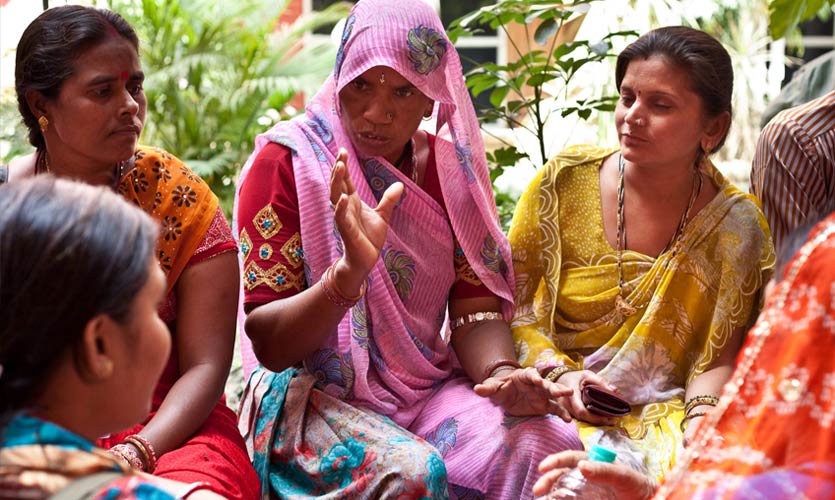Representation of women in politics and achieving gender equality seems to remain a distant dream for one of the world’s largest democracies. India, after years of socio-political evolution, is still grappling with stereotypes and does not seem to have come out of its age-old, preconceived notions about women working in the political world.
In 1951, at least 24 women candidates contested during the first general election in India. This number grew to 660 in 2014, and in the recent 2019 Lok Sabha election, a total of 715 women candidates contested, compared to more than 7300 male candidates.
‘Women and men make equally good political leaders’, is the belief held by most Indians, according to a new Pew Research Centre survey of 30,000 adults across India. Interestingly, one in every ten feel that women generally make better political leaders. The survey seemingly indicates the country’s thought process, reflecting the anticipation of female political candidacy in India. Yet, the political participation hasn’t grown much, and can still be considered as ‘poor’.
In a report compiled by the Inter-Parliamentary Union in 2019, India ranks 144 among 193 countries globally when it comes to representation of women in national parliaments.
Political scientists, after analysing the survey conducted in India’s largest state – Uttar Pradesh – concluded that part of the reason behind less women candidacy is their lack of involvement in electoral activities such as participation in election campaigns, listening to speeches, applying for party membership, and being aware of the political scenario in general. A paper delving into the gendered perception and political candidacies in the United States shows that things are very similar in both countries despite access to education, upliftment, and more women being part of the workforce.
Women, especially in rural India, face countless barriers when taking a step towards political leadership. Mobility restriction, for instance, is one such obstacle that is very common. The data suggests that more than 46 percent of women in rural India require permission from the men of the house to go to a friend’s place, let alone participate in something meaningful. While the mobility concern would possibly subside considerably in urban areas, a new ‘safety’ concern arises.
India is predominantly a rural country where gender biases, inequalities, and questioning the capability of a girl willing to join the STEM field can still be expected. This is a significant matter of concern, as India is a leading economic player in the global market, and ensuring female participation in politics, as well as the labour force is crucial to its growth.
Indian politics, which is largely considered a male-dominated space, has produced powerful female leaders like Indira Gandhi, Sonia Gandhi, Sushma Swaraj, Nirmala Sitharaman, Mayawati, Mamata Banerjee, J Jayalalithaa, and many more who have been trail-blazers and solidified the pathway for female political candidates in the country.
Researchers argue that many of India’s women leaders come from privileged and upper-caste families, and that politics is out of reach for an ‘ordinary woman’ of the country.
Pratima Mondal, a Member of Parliament from Jaynagar, West Bengal, who’s also known for her Mangrove Forest Restoration Drive, believes that women are better at multitasking. However, she says that due to societal conditioning, they’re asked more questions with regards to their household responsibilities, especially when they’re a part of the workforce. “Men politicians should move beyond party politics and support the women reservation bill in parliament. Men in politics should attack sexism in parties, politics, and every arena of the society, promoting new women parliamentarians and lawmakers to participate actively and not remain as silent partners,” said Mondal.
Read more: Lok Sabha Compiles Document Listing Achievements Of MPs During COVID
Dr Alice Evans, a social scientist at King’s College London, believes that the concept of parents wanting a son and expecting him to provide for them when they’re old, is inherently flawed and further exacerbates the gender disparity. If women, ‘daughters’, could get decent jobs and be properly educated, then they can also easily provide for their parents, diminishing the preference towards having sons.
Women’s political participation in India still has a long way to go, especially at higher levels of government. However, as witnessed in recent years, more female leaders, reformers, and activists have taken up the centre stage, creating a path for the upcoming generation. The pace at which the political scenario is evolving currently might lead to a grand policy change, furthering female candidatures.










